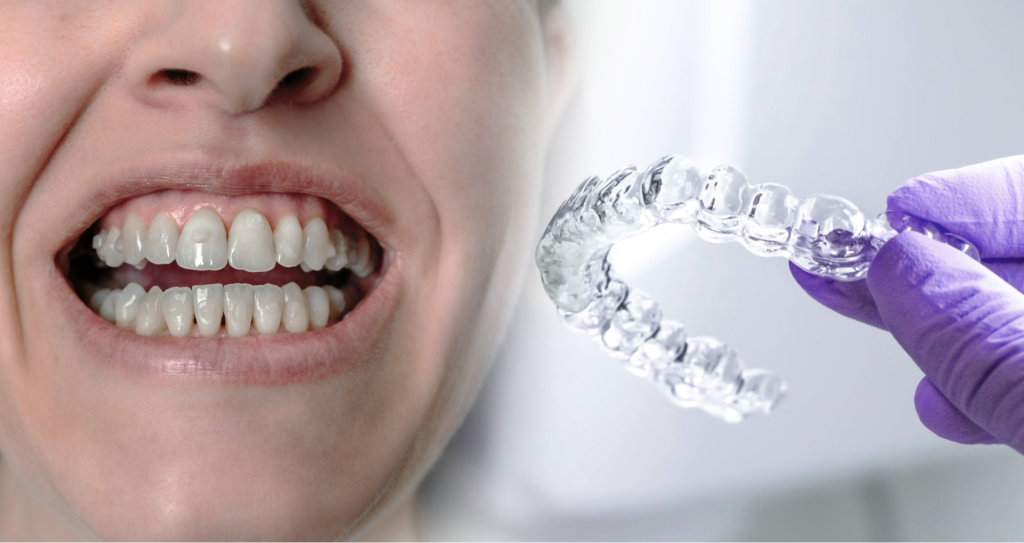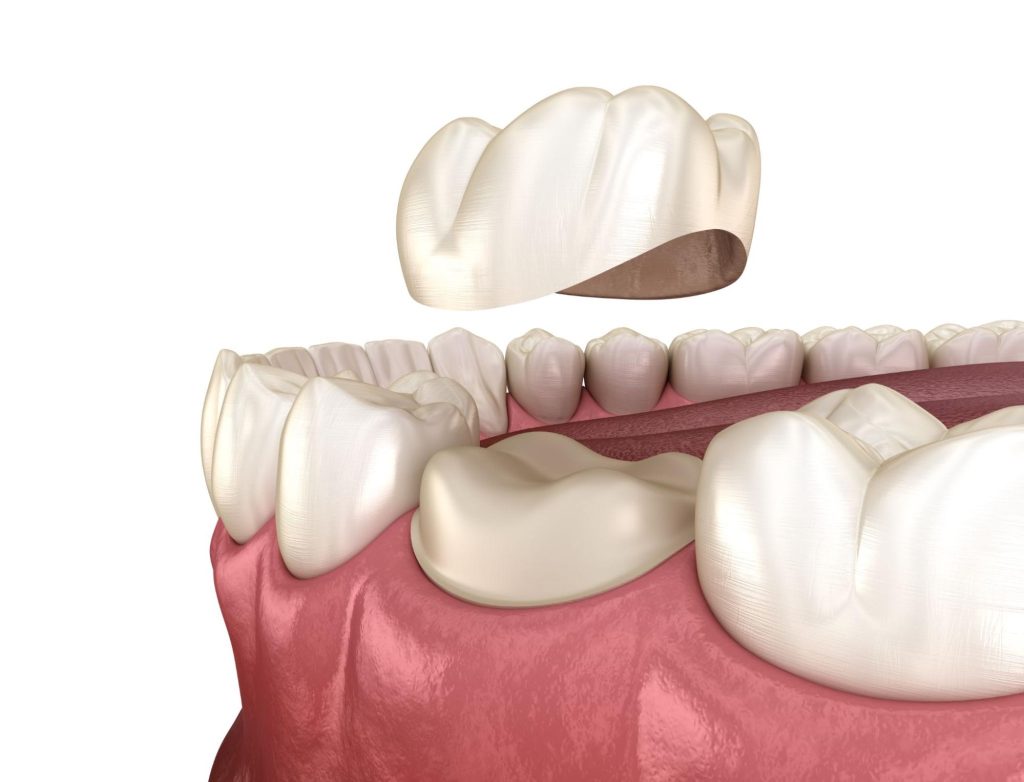Cavities are the last thing you want to see on your teeth. Not only do they look ugly, but they can also spread to healthy teeth and become painful if not treated on time. The regular route for teeth cavities is a filling or a root canal if there’s extensive decay, but the treatment for a wisdom tooth cavity can be a little different.
Wisdom teeth, also known as third molars, are the last set of permanent teeth to come in, usually appearing between the ages of 17 and 25. They are located at the back corners of the mouth, on both the top and the bottom. This makes them difficult to clean and more exposed to the risk of tooth decay or cavities.
What should you do if you have a wisdom tooth cavity? This depends on various factors such as the positioning of your wisdom tooth, the extent of decay and most importantly if your wisdom tooth is impacted.
Sounds confusing? Don’t worry. We’re here to give you the low down on wisdom teeth, explaining everything from impacted wisdom teeth to wisdom tooth cavity symptoms and treatment options. Read on to learn more.
What is a Wisdom Tooth Cavity?
A wisdom tooth cavity is the same as the cavities you can develop on the rest of your teeth. The earliest form of tooth decay, a cavity is a hole in the tooth enamel. It happens when bacteria in the mouth turn sugars and starches from food and drinks into acids, weakening the tooth enamel.
Wisdom teeth are more prone to infections and cavities because they are located at the back of the mouth. Since they erupt at an age when the rest of the teeth have already come out, they may not be able to come out fully, getting stuck under the bone or gum. These are called impacted wisdom teeth and generally have to be extracted to avoid infection, tooth decay and overcrowding of the teeth.
However, not everyone’s wisdom teeth get impacted. Some grow fully at the right angle without causing any problems at all. While others stay inactive or don’t erupt altogether. As wisdom teeth don’t provide any useful function, impacted wisdom teeth or those causing complications are usually extracted.
Wisdom Tooth Cavity Symptoms
Cavities, especially those beginning to develop, are not always visible or painful. They may develop on the surface of the tooth enamel or inside. Either way, any cavity on your teeth must be treated before the decay worsens and spreads to your healthy teeth.
Wisdom tooth cavities are even more difficult to detect because of their location. But there are some symptoms you can look out for to get early treatment and relief. They include:
- Swelling near the affected area
Tenderness or swelling near your wisdom tooth may be an indication of a cavity. This could also mean your wisdom tooth is impacted or in the process of coming out.
- Chips, dents, or holes in the surface of the tooth
If you see or feel any chips, holes, or dents on your wisdom tooth surface, it may be because of a cavity.
- Cracked or loose-feeling teeth
The bacteria from the cavity can cause the tooth to weaken and eventually crack or become loose. If you feel a crack or your tooth feels loose, there may be decay causing damage to the wisdom tooth.
- Sensitivity to certain foods
Sensitivity to certain foods, such as hot and cold temperatures or sharp, shooting tooth pain, can also be a sign of a wisdom tooth cavity.
- Bad breath or an unpleasant taste in the mouth
Cavities are caused by bacteria that live in the mouth and produce sulphur compounds, leading to bad breath and acids that damage tooth enamel. An unpleasant taste or odour could be a sign of cavities.
Wisdom Tooth Cavity Treatment Options
There are various treatment options for a wisdom tooth cavity. Your dentist will perform an oral examination with x-rays before recommending treatment. This is because the wisdom tooth’s positioning, growth and whether it is impacted or not factor into your treatment options.
Some of the wisdom tooth cavity options include:
1. Dental Filling
The most common treatment for a cavity anywhere in your teeth is dental filling. This involves removing the decay from the affected tooth and filling it with a composite or amalgam filling. A dental filling may be an option if your wisdom tooth is fully grown and not impacted.
2. Dental Crowns
A dental crown or cap is an artificial tooth placed on the damaged tooth to protect it from further damage. It is not a treatment for cavities but is generally used to cover the treated tooth after a cavity or decay is treated. A dental crown is generally used after a root canal treatment when there’s extensive decay and a large section of the tooth is removed while treating it. A dental crown protects the remaining tooth structure, restoring its functionality and appearance.
3. Wisdom Teeth Removal
An impacted wisdom tooth stuck inside the bone of the gum has an increased risk of cavities and infection. As the tooth is partially grown, the bone or root of the tooth is exposed to bacteria and plaque buildup. An impacted wisdom tooth must be removed to protect against infection, cavities, and pain because it does not have space to grow out fully. It will continue to cause complications and dental problems if not extracted.
How to Prevent Future Cavities
Tooth cavities are one of the most common oral issues in Australia, with over 1 in 3 adults over 15 having untreated tooth decay. But dental caries or tooth decay can be prevented with good oral hygiene, regular deep cleaning and dental checkups.
Here are some useful tips to help prevent teeth cavities:
- Limit sugary foods and drinks
Limiting sugar intake reduces bacteria in the mouth that feeds on sugar and produces acid that wears away the enamel of the teeth. This acid leads to cavities in the teeth, which can cause pain and other dental issues. Keep a healthy diet, rich in calcium and minerals to maintain your teeth and avoid sugar-laden processed food and drinks.
- Use a fluoride toothpaste
Brush twice daily with a strong fluoride toothpaste to protect your tooth enamel. Fluoride helps remineralise the enamel and makes it more resistant to decay-causing acids and bacteria. It also helps reduce the amount of plaque buildup on your teeth and controls the growth of bacteria that feed on sugar and cause cavities.
- Floss regularly
Floss at least once a day to protect your teeth from cavities. Flossing helps remove plaque and food particles between the teeth and the gum line to prevent plaque buildup.
- Visit a dentist regularly
Regular dental checkups are the first form of defence against most oral problems. They help detect dental issues early on, allowing for timely treatment. Regular visits to dentists also ensure you get a deep cleaning when required and maintain good oral hygiene practices with the right products and guidance.
- Use a mouth rinse
Use an antiseptic mouth rinse to minimise bacteria in the mouth, especially hard to reach areas which are more prone to plaque buildup and cavities.
Wisdom Teeth Treatment at Mosman Fine Dental
Tooth decay, be it for wisdom teeth or any other tooth, should be treated without delay to protect your remaining teeth. This minimises the need for extensive future treatment and restorations.As wisdom teeth can be tricky because of their placement and tendency to become impacted, they must be treated with gentle care and accurate diagnosis to avoid further complications and pain. At Mosman Fine Dental, we can help you treat an impacted wisdom tooth with treatments tailored to your dental requirements and oral care. Whether you need wisdom tooth extractions or to get the cavity treated, we’re here to help – prioritising your oral health and comfort for lasting dental solutions. Talk to our dentists about wisdom teeth removal today.



